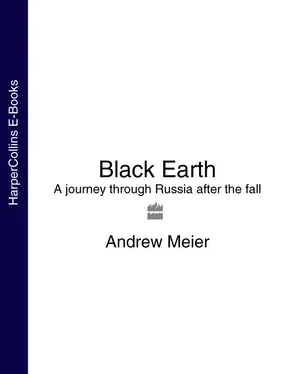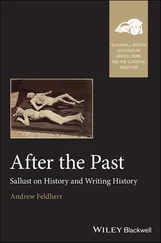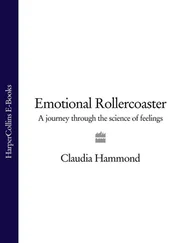But it was his novella The Yellow Arrow that I kept close. In under fifty pages, Pelevin creates a metaphoric world that reveals Russia’s predicament, a train bound for a broken bridge that neither stops nor arrives anywhere. The admixture of satire and mysticism is heady. The train’s passengers, stranded in an iron coffin hurtling into infinite darkness, mimic the desperate last resorts of Russians, devolving into hunter-gatherers, swindlers, and madmen.
Pelevin soon gained a cult of envy. He was, rivals said, too clever by half. “But I’m not doing anything new,” he pleaded. “I’m just writing what I see in my head.” His works were sold in bookstores and kiosks across Russia. But his influence extended far beyond his readership. Pelevin changed the lexicon of Russia’s hip urban youth, many of whom never read his books. By the time Generation “P ,” a novel about the travails of a Russian copywriter, came out, it was hard to exaggerate his reach. The title was meant as a pun on Generation X and the Pepsi Generation. P stands for pizdets , a crude, but beloved, swearword that ends the sentences of young Russians everywhere. It means, alternately, “the absolute best” or “the absolute worst.” Yet given the book’s, reach, the P might as well have stood for Pelevin.
On RuNet, the Russian Internet, Pelevin Web sites sprouted. Girls carried his novels in nightclubs and pored over them in the metro. In my travels I found Pelevin everywhere: a Pelevin band (heavy metal) in Pskov, a Pelevin disco (techno) in Samara, even a Pelevin movie (a bootleg film of a novel) in the works in Yaroslavl. In the West, meanwhile, his works became the focus of academic symposia. Pelevin had a constructive response to celebrity. He hid. He adopted the pose of a Slavic Pynchon or Salinger. He refused to be photographed or appear on television. Naturally, his fame only grew.
One night well into my last summer in Moscow, Pelevin and I met up at Justo, a sushi restaurant/nightclub high on the high end of the market. Justo was opened by the son of Iosif Kobzon, an aging crooner with a bad wig who was known as the Russian Frank Sinatra. For decades Kobzon has been the king of Estrada, the Soviet equivalent of a national lounge singer. For a time Kobzon was not able to visit the United States, thanks to the State Department’s suspicions that he had mob connections, a charge he strongly denies. 12His son’s place attracted the city’s most-traveled and, no matter the season, best-tanned crowd.
Viktor ordered sushi and tea. He had a fabled reputation as a chemical experimenter on a par with Jim Morrison. But he does not smoke or drink. He meditates. He is a devout Buddhist. He now shuttled among Moscow, Tibet, and South Korea, where he went for extended Zen retreats. In his work Pelevin spoke to Russia’s bedlam, but he never preached. Too many generations of Russian writers, he said, had been priests of the state’s propaganda. Stalin had demanded that writers be “architects of the soul.” Too many Russian novelists had lived off “the literary collective farm.” The reality of Russia, now more than ever, was too surreal, he said, to explain away in black and white.
Pelevin had just returned from a South Korean monastery. For a month he had eaten only rice and seaweed. For hours each day he had sat and stared at a blank wall. It didn’t sound like fun, I ventured. It wasn’t, he said. “But it’s the best therapy I’ve found for living in this place.”
Once he had asked advice on an English title for a novel. Now I returned the favor. He pushed for something that rang of Dostoyevsky or Tolstoy but echoed the new era as well: “Something Putinian.”
“ Crime and Immunity ,” I suggested.
“ Crime and Deportation ,” he countered. “More in keeping with the times.”
“ War and Crime ?” I offered.
“Too timely,” he said. “What about War and Piss ? Or even better, Vor and Piss .” He was on to something. Vor is Russian for “thief” and to a Russian ear, “peace” and “piss” are hard to distinguish. And on it went for hours.
One of our best efforts was Golaya Pravda ( The Naked Truth ). We had met at the time of the Kremlin’s attack on NTV, and as Putin drove Russia’s first private network into friendly hands, freedom of speech, or the lack thereof, had dominated public discourse. Putin and his men tried to argue that Russia’s airwaves were free and open. They had a point. The television channels were closed to political opponents, but they were certainly not straitlaced. The Naked Truth proved that.
Saturday nights at eleven a comely young brunette named Svetlana Pesotskaya appeared on a Moscow channel to read the news. She began the broadcast fully clothed, and then, as she ran through the news of the day, she slipped off her clothes. Soon she was topless. Svetlana did not let nudity get in the way of a good interview. Communist parliamentarians were her most frequent interlocutors. They sat next to her and, trying their best not to stare at her breasts, plowed on about the dire state of agriculture, the defense forces, or Russian-Japanese relations. The Naked Truth , at least among a press corps in search of a story, was a hit.
As a full moon rose and the club reached capacity, Viktor and I left. The street outside had become a parking lot of black German sedans and American Jeeps. The interior lights of the cars illuminated faces engrossed in crime thrillers, chauffeurs keeping warm. We walked for blocks, past the Tretyakov Gallery, past MinAtom, the Ministry of Atomic Energy, past the Central Bank, before we parted. I walked on alone toward St. Basil’s and Red Square, across the broad stone bridge that spans the Moscow River. It was nearly two in the morning, and the streets were empty. Only the river churned darkly below.
Once, years before, Viktor and I had sat on a bench on the edge of Pushkin Square. The city seemed to stream before us. It was a chill spring day, and the sun had brought out the crowds. Zhirinovsky had commandeered a truck and turned it into a soapbox. He was hectoring a crowd to defend Saddam Hussein against the Satan in Washington. A man stopped to ask us the time. He also asked if we knew that Yeltsin was a war criminal. I told Viktor that day how lucky he was. As a writer in Russia, a hip young writer who wore black leather and dark sunglasses and protected his persona as religiously as Pynchon, he would find it hard to fail. The West was dying to discover a new voice in the Soviet rubble. “You’ll be big,” I predicted.
“You’re the lucky one,” he replied. “The old is over here, and the new has yet to begin.”
We agreed; few people get to experience zero gravity on earth.
HOW DO YOU EXPLAIN a state in decay? How do you explain a country where the death of an ideology has displaced millions? How do you explain a government that announces a 50 percent increase in defense spending when the poverty line cuts through a third of its households and its poor souls face new epidemics of HIV and TB, suicide and drug abuse and, most pervasive of all, the old scourge of alcoholism? Where people do not fear the future, they fear – with good reason – the past.
In Russia nothing political stays unchanged for long. Kremlin intrigues, however transfixing they may be, do not suffice to draw a faithful portrait of Russia a decade after the Soviet fall. Russia of course has changed. But for far too many of its inhabitants it remains an Old Testament land, a place of plagues and floods, of locusts and blizzards and power outages without end. I knew I would have to go far from Moscow, as far as the points of the compass could lead me, to chart a deep map of the country, to learn how Russians not only survive but struggle to find meaning in the ruins of empire.
Читать дальше












